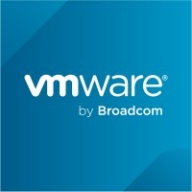

Nagios XI and VMware Aria Operations for Applications compete in the monitoring tools category. VMware seems to have the upper hand due to its comprehensive monitoring capabilities across varied environments.
Features: Nagios XI is an open-source tool that monitors services and system metrics. It offers extensive customization through plugins and is robust in network services monitoring. VMware Aria Operations for Applications is proficient in monitoring cloud and hybrid environments with predefined dashboards and strong querying functions.
Room for Improvement: Nagios XI necessitates additional plugins for specific features, leading to increased complexity. Its installation process is challenging, and it requires enhancements in the user interface and monitoring automation. VMware Aria Operations for Applications could enhance integration capabilities and provide more user-friendly dashboards. Streamlining its production deployments is also needed.
Ease of Deployment and Customer Service: Nagios XI is predominantly used in on-premises settings and supported by a strong community, though it demands complex configurations during deployment. VMware Aria Operations for Applications is designed for both hybrid and on-premises environments, with easier cloud integration. Both offer support, with VMware providing more direct and responsive customer service.
Pricing and ROI: Nagios XI is cost-effective with its open-source option, appealing for smaller deployments, while its commercial version offers good value despite recent price increases. VMware Aria Operations for Applications requires a higher financial commitment due to licensing fees for components like Tanzu Observability, promising value with its comprehensive features over a long-term investment.
| Product | Market Share (%) |
|---|---|
| VMware Aria Operations for Applications | 2.0% |
| Nagios XI | 3.4% |
| Other | 94.6% |

| Company Size | Count |
|---|---|
| Small Business | 22 |
| Midsize Enterprise | 17 |
| Large Enterprise | 21 |
| Company Size | Count |
|---|---|
| Small Business | 4 |
| Midsize Enterprise | 1 |
| Large Enterprise | 10 |
Nagios XI provides monitoring of all mission-critical infrastructure components, including applications, services, operating systems, network protocols, systems metrics, and network infrastructure. Third-party add-ons provide tools for monitoring virtually all in-house and external applications, services, and systems.
Nagios XI uses a powerful Core 4 monitoring engine that provides users with the highest levels of server monitoring performance. This high degree of performance enables nearly limitless scalability and monitoring powers.
With Nagios XI, stakeholders can check up on their infrastructure status using the role-based web interface. Sophisticated dashboards enable access to monitoring information and third-party data. Administrators can easily set up permissions so users can only access the infrastructure they are authorized to view.
Nagios XI Benefits and Features
Some of the benefits and top features of using Nagios XI include:
Reviews from Real Users
Nagios XI stands out among its competitors for a number of reasons. Several major ones are its integration options and monitoring abilities, as well as its alerting features.
David P., a senior DevOps engineer at EML Payments Ltd, writes, “We use Nagios as a network discovery tool. We use Nagios to maintain our uptime statistics and to monitor our services. It has allowed us to be much more sophisticated in our monitoring and alerting.”
An IT-OSS manager at a comms service provider notes, “Nagios XI has a custom API feature, and we can expose custom APIs for our integration. This is a great feature.”
VMware Tanzu Observability by Wavefront is a powerful tool for monitoring and analyzing the performance and availability of applications and infrastructure in real-time.
With its comprehensive monitoring capabilities, visualizing and analyzing data becomes effortless. The real-time alerting system ensures timely issue resolution, while scalability and a user-friendly interface provide a seamless experience for smooth operations.
We monitor all Cloud Monitoring Software reviews to prevent fraudulent reviews and keep review quality high. We do not post reviews by company employees or direct competitors. We validate each review for authenticity via cross-reference with LinkedIn, and personal follow-up with the reviewer when necessary.